Publications
Articles, publications, books, tools and multimedia features from the U.S. Institute of Peace provide the latest news, analysis, research findings, practitioner guides and reports, all related to the conflict zones and issues that are at the center of the Institute’s work to prevent and reduce violent conflict.
The Internet, Transnational Networking and Regional Security in South Asia
Analysts have raised the possibility of increased turbulence in the world system as the flow of information becomes democratized, as information becomes broadly available outside previously narrowly defined areas of expertise, and hence, as hierarchies tumble. Others have focused on the impact on military security of the increasingly sophisticated means available to both rival states, as well as groups that challenge states, for changing and disrupting the flows of information and the informa...
The Enterprise of Diplomacy in the Information Age
Dealing with information technology and the reinvention of businesses and government are central issues throughout the public and private sector today. Changes resulting from information technology range from upgrading telecommunications and computer systems to rethinking completely the nature of enterprises and entire industries.
Conventional Wisdom about Information Technology
When I started to examine the impact of information technology on international relations a few years ago, I was initially attracted to the topic because there was not a lot of conventional wisdom on it. Compared to NATO enlargement, peacekeeping or ethnic conflict, this was a very new topic.
Virtual Tools for Real Diplomacy
I'm very excited to be talking to you because the era of computing that we're starting to get into is about to explode. The next ten years are going to require your expertise, the expertise of diplomacy, of understanding human beings, of understanding human affairs.
The Topology of Sovereignty
Traditional diplomacy is about territory. It works on the assumption that human communities are organized in sovereign nation-states with clearly defined borders. Such diplomacy is much more comfortable with geography than with anything else.
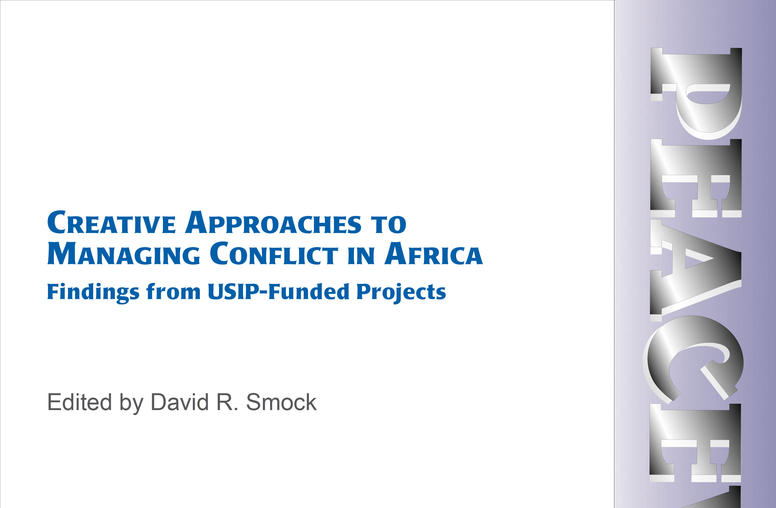
Creative Approaches to Managing Conflict in Africa: Findings from USIP-Funded Projects
The purpose of this report is to share some lessons of projects which have identified or implemented innovative approaches to managing Africa's conflicts, and examine their potential applicability to other conflicts there or elsewhere.
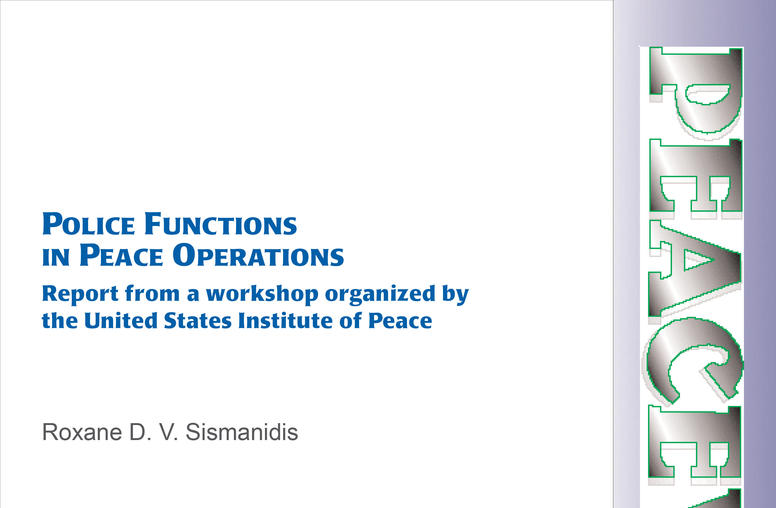
Police Functions in Peace Operations: Report from a workshop organized by the United States Institute of Peace
Much of the current debate on police functions in peace operations is informed by a distinct set of strategic and policy concerns that have acquired special prominence in the 1990s, as these operations have grown increasingly complex because of their deployment in countries whose societies have completely collapsed. The United States Institute of Peace decided to address these issues in view of its ongoing work on the rule of law and other postconflict issues.
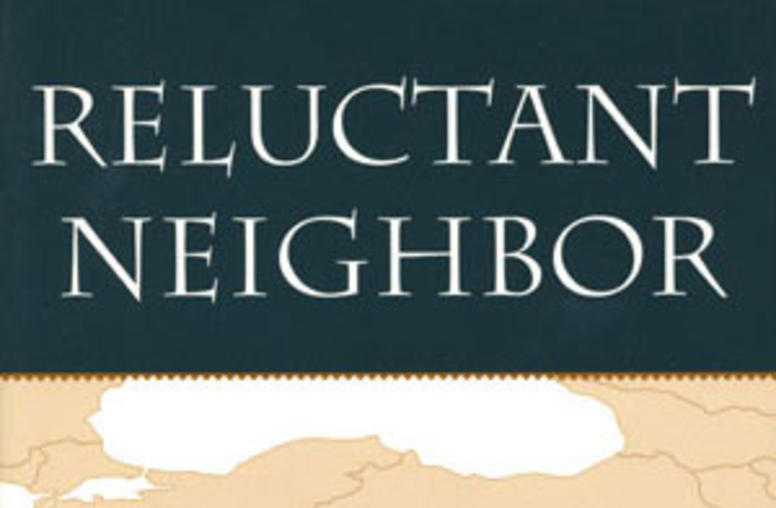
Reluctant Neighbor
The essays in this volume fill an important gap in the literature on Turkey and the Middle East, bringing together the points of view of scholars, journalists, and other observers from the United States, Europe, Turkey, and the Middle East for an unprecedented dialogue on issues of growing importance.
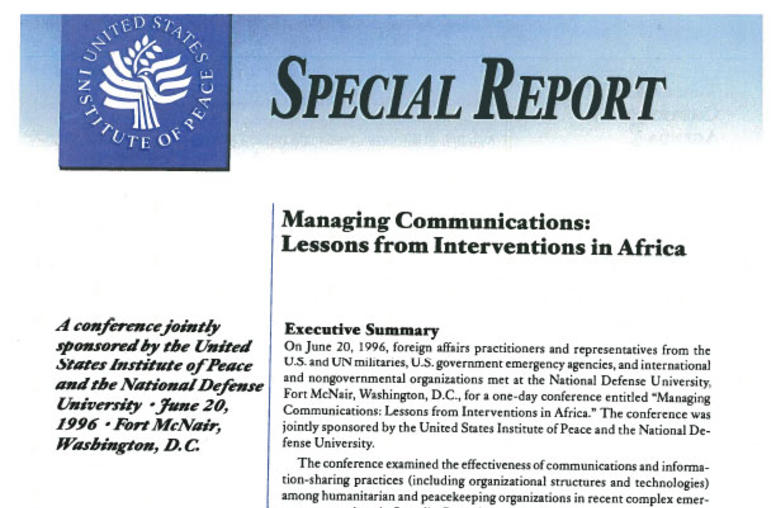
Managing Communications: Lessons from Interventions in Africa
"Managing Communications: Lessons from Interventions in Africa," the conference was jointly sponsored by the United States Institute of Peace and the National Defense University. It examined the effectiveness of communications and information-sharing practices (including organizational structures and technologies) among humanitarian and peacekeeping organizations in recent complex emergency operations in Somalia, Rwanda, and Liberia.
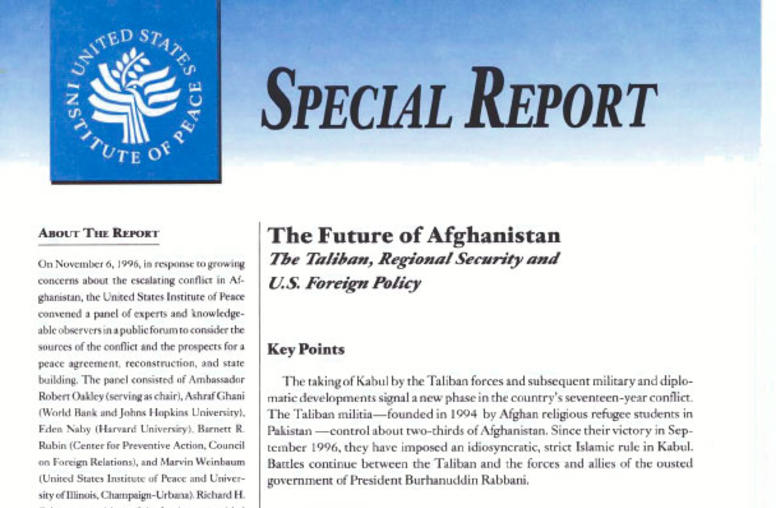
The Future of Afghanistan: The Taliban, Regional Security and U.S. Foreign Policy
In response to growing concerns about the escalating conflict in Afghanistan, the United States Institute of Peace convened a panel of experts and knowledgeable observers in a public forum to consider the sources of the conflict and the prospects for a peace agreement, reconstruction, and state building.